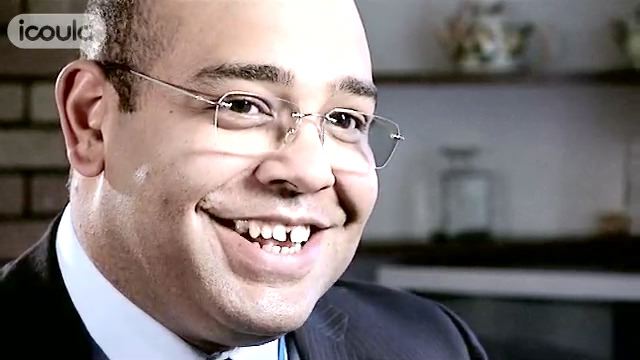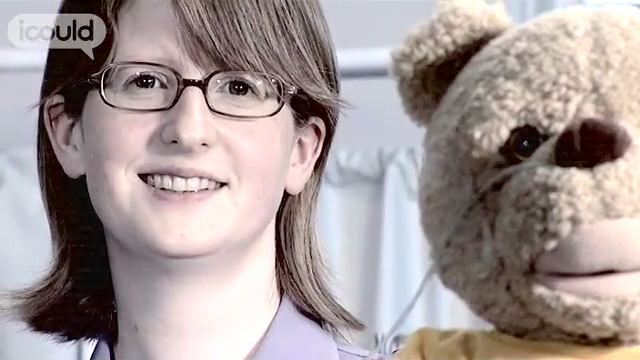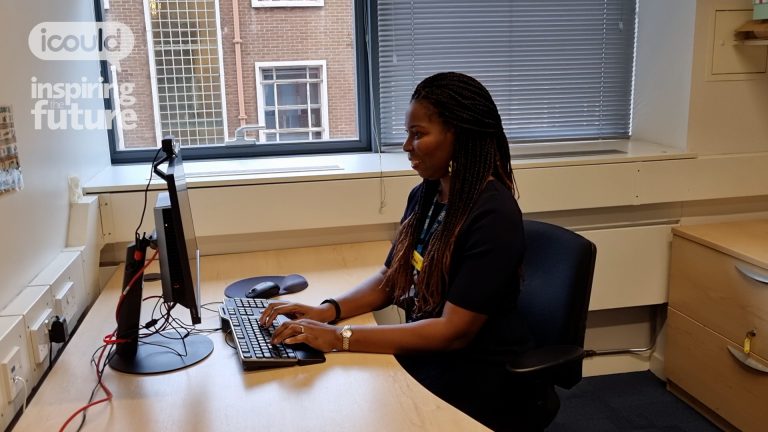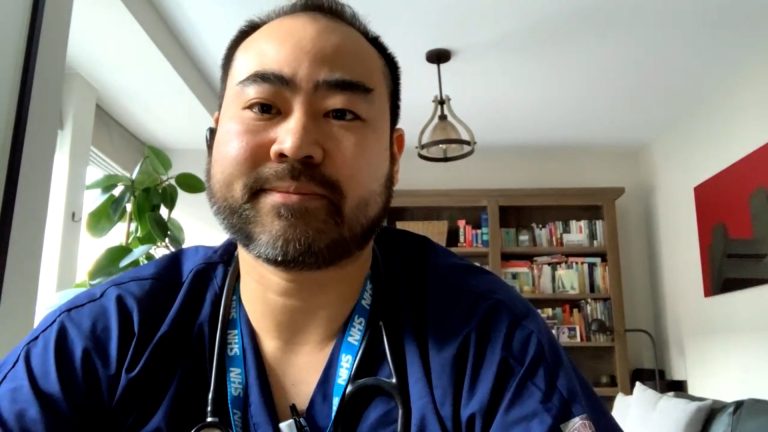Dietitian
Addenbrookes Hospital
Julia S
00:00:03 My name’s Julia S and I’m a Paediatric Dietician. It’s basically about supporting children’s growth through whatever medical condition they have that runs alongside the reason that they end up in hospital. So we might deal with children who have got problems with their heart, or problems with their gut, or might have a diagnosis of cancer. We work with children right from those who are born too early, right up until sixteen. So depending on the age of the child is the different challenges that come along.
00:00:33 An example of where I might be used is a child who’s been diagnosed with an inflammatory bowel condition. And one of those is a disease called Chromes Disease. The main treatment for Chromes Disease is actually a liquid diet for six weeks, followed by food introduction. So I’d support the families in using the liquid diet to get the child’s disease under control.
00:00:56 It’s a really interesting job and no two days are the same, and no two patients are the same. You have to be able to adapt on a daily basis, and to sometimes deal with quite difficult situations. But it’s extremely rewarding getting people well and on the right path.
00:01:12 Things that I find motivating are the gratefulness from the parents. It’s an issue that’s involved a lot with emotion and it’s all – feeding your child is about loving them and supporting them and helping them grow. And for me to be able to help a mother or a father do that is really important.
00:01:31 It can be really challenging getting people to make changes. It can be really challenging motivating people, for example, when they are on six weeks of liquid diet you need to keep motivating, and keep the families on track, and help support them with it. It can be very difficult with parents and families who have had bad news along – in terms of their medical conditions. It can be quite challenging to work with families who are struggling with a difficult diagnosis.
00:02:02 There are some real inspirational children out there. You only need to look at the children’s cancer wards to see the absolute thrill that they have for life, and the way that they just get on and enjoy it.
00:02:14 I got into dietetics – I did an undergraduate science degree at University and got to the end of that and decided I didn’t want to spend the rest of my life working in a lab or being a sales rep, and managed to find a course that put my two loves in life, which is food and talking, together and the rest, as they say, is history. I did another two year course and trained with a – came out with a State Registered Dietician qualification.
00:02:39 I think I was a bit of a swot at school. I worked – I worked reasonably hard, had my setbacks, but all came good in the end. I knew I wanted to do something with Science and I chose my GCSEs and my A-Levels accordingly along things that I enjoyed, and that I was better at compared to other things. And I was lucky that the ones I chose pointed me in the right direction.
00:03:06 I don’t think my friends who knew me when I was sixteen would be surprised by what I’m doing, my mother certainly is because as a child I was an extremely fussy eater. My Mum’s very proud of my career, she really is. She has always told me that I was never allowed to become a teacher because she was a teacher, but actually the kind of role that I work in is definitely a teaching role.
00:03:27 I’ve been very lucky with my career. Just at the time when I’ve been thinking I should look for a new challenge, new challenges have come along, and I’ve had a number of different jobs within my – within my career that have been really varied and exciting. And I can’t think of anything really that has held me back. I really really enjoy it, and would recommend it to anybody.
00:03:49 ENDS
If working with inspirational children, making a difference to individuals’ lives and supporting families sounds appealing, then Paediatric Dietician may be a career for you. Julia S would recommend it to anybody. It allowed her to build on her achievement in Science and to combine her love of food and talking!
More information about Health associate professionals n.e.c.
The UK average salary is £29,813
There are 37.5 hours in the average working week
The UK workforce is 47% female and 53% male
Future employment
- Provides information, support and advice on diet
- Counsels people on their problems, feelings and dealing with stress
- Provides information, support and advice on healthy living and helps people develop healthier lifestyles
- Teaches parents about pregnancy, delivery and early parenthood
- Examines horses’ teeth for health problems and provides dental treatments which do not need to be provided by a vet








